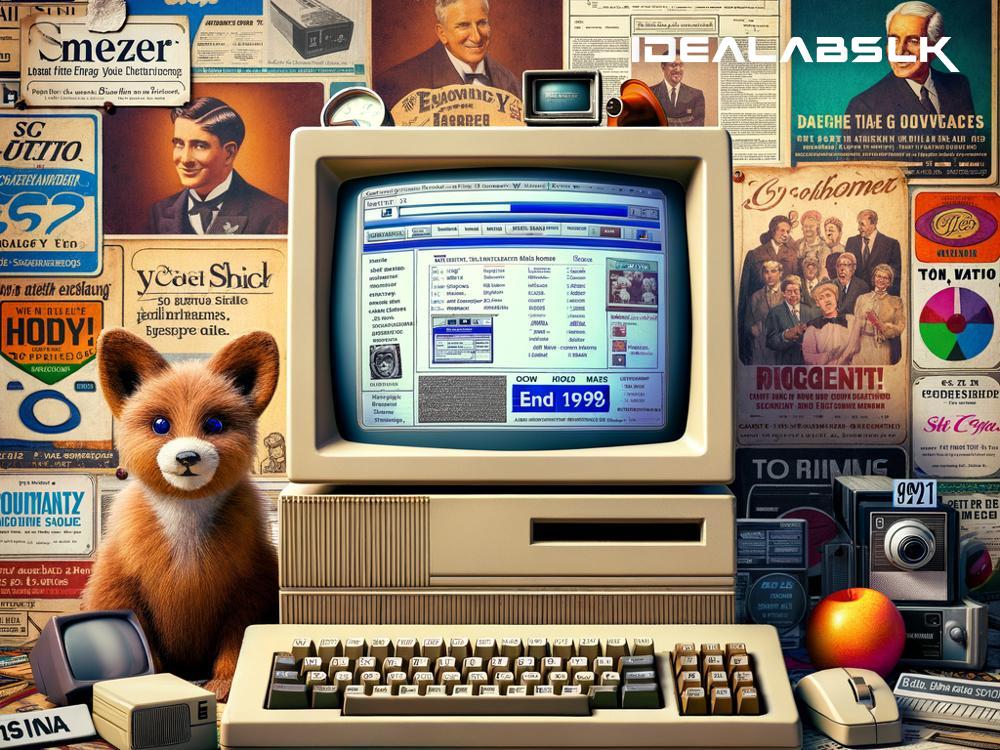The Evolution of Digital Marketing Platforms: A Journey Through Time
In the ever-changing world of marketing, the emergence and evolution of digital platforms have marked a revolution in how businesses connect with their customers. The journey from simple emails to sophisticated social media and search engine strategies showcases a dynamic shift in communication, advertising, and brand-consumer relationships. Let's dive into the fascinating history of digital marketing platforms and understand how they've transformed over the years.
The Dawn of Digital Marketing
The story begins in the early 1990s when the internet started becoming more accessible to the public. This period marks the birth of digital marketing, although in a very primitive form compared to what we know today. The first noteworthy step into digital marketing was arguably the adoption of email. In 1978, Gary Thuerk sent the first mass email to about 400 potential clients, which generated a surprising amount of sales, showcasing the potential of digital technologies in marketing.
The Rise of Search Engines
The mid-90s witnessed the rise of search engines, with platforms like Yahoo (1994) and Google (1998) coming into the scene. This era introduced the concept of SEO (Search Engine Optimization), where marketers learned that by optimizing their content with certain keywords, they could rank higher in search engine results, thus increasing their visibility.
The Emergence of Social Media Platforms
The early 2000s saw the birth of social media platforms, with LinkedIn (2003), Facebook (2004), YouTube (2005), and Twitter (2006) leading the way. These platforms opened new avenues for marketers to engage with their audience in a more personal and interactive manner. Businesses began creating profiles, sharing content, and starting conversations, making marketing more about building relationships than just selling products.
The Era of Mobile Marketing
The introduction of smartphones and the App Store in 2007 paved the way for mobile marketing. Apps, mobile-friendly websites, and SMS marketing became crucial in reaching customers who were increasingly using their mobile phones for everything from browsing the internet to shopping. This period also saw the rise of location-based advertising, where businesses could target ads based on the user's geographic location.
The Advent of Personalization and Big Data
As digital platforms evolved, so did the tools and technologies available for marketers. The late 2000s and early 2010s introduced us to the power of big data and analytics. These tools allowed businesses to gather detailed insights into their customers' behavior and preferences, enabling highly personalized marketing strategies. Services like Google AdWords (now Google Ads) became more sophisticated, offering targeted advertising based on a wealth of user data.
The Growth of Content and Influencer Marketing
Content marketing became a buzzword as businesses realized that creating valuable, relevant content could attract and engage audiences more effectively than traditional ads. Blogging, infographics, and video content became key strategies. Similarly, as social media influencers gained popularity, influencer marketing emerged as a powerful way to reach potential customers through trusted voices within various communities.
Today's Integrated Digital Marketing Ecosystem
Today, we live in an era where digital marketing platforms are more integrated than ever. Omnichannel marketing strategies that provide a seamless customer experience across devices and platforms are the gold standard. Artificial Intelligence (AI) and Machine Learning (ML) are being utilized to automate and optimize marketing campaigns. Social media platforms keep evolving, with features like shoppable posts and augmented reality ads making the shopping experience more immersive.
Virtual and augmented reality technologies are starting to play a role in digital marketing, offering unique ways to engage customers. Moreover, with growing concerns about privacy, marketers are now focusing on strategies that respect user data while still delivering personalized experiences.
Looking Towards the Future
As we look towards the future, it's clear that digital marketing will continue to evolve. Emerging technologies like blockchain and the Internet of Things (IoT) promise to bring even more changes to how marketers interact with their audiences. The focus will likely continue shifting towards creating more authentic, engaging, and personalized customer experiences.
The history of digital marketing platforms is a testament to the rapid advancement of technology and the adaptability of marketers in leveraging these tools to connect with audiences. From the early days of email to the sophisticated digital ecosystems of today, the journey of digital marketing is a fascinating story of innovation, creativity, and growth. As we move forward, one thing remains certain: the world of digital marketing will never stop evolving, offering endless possibilities for businesses to reach and engage their customers in meaningful ways.

